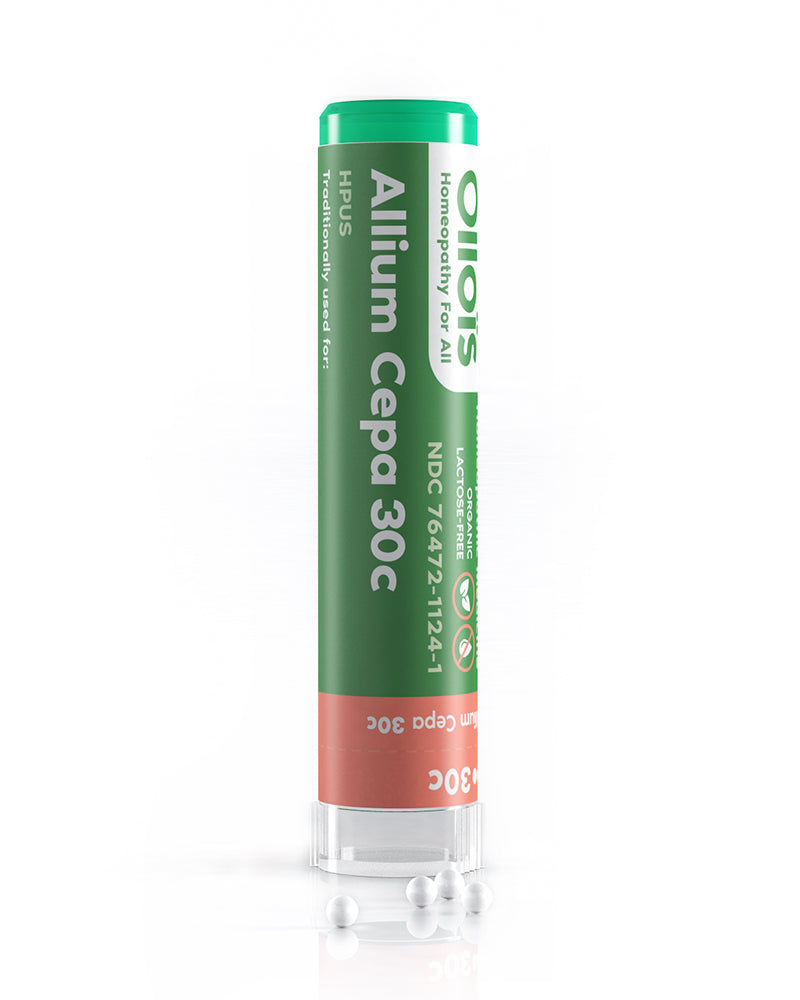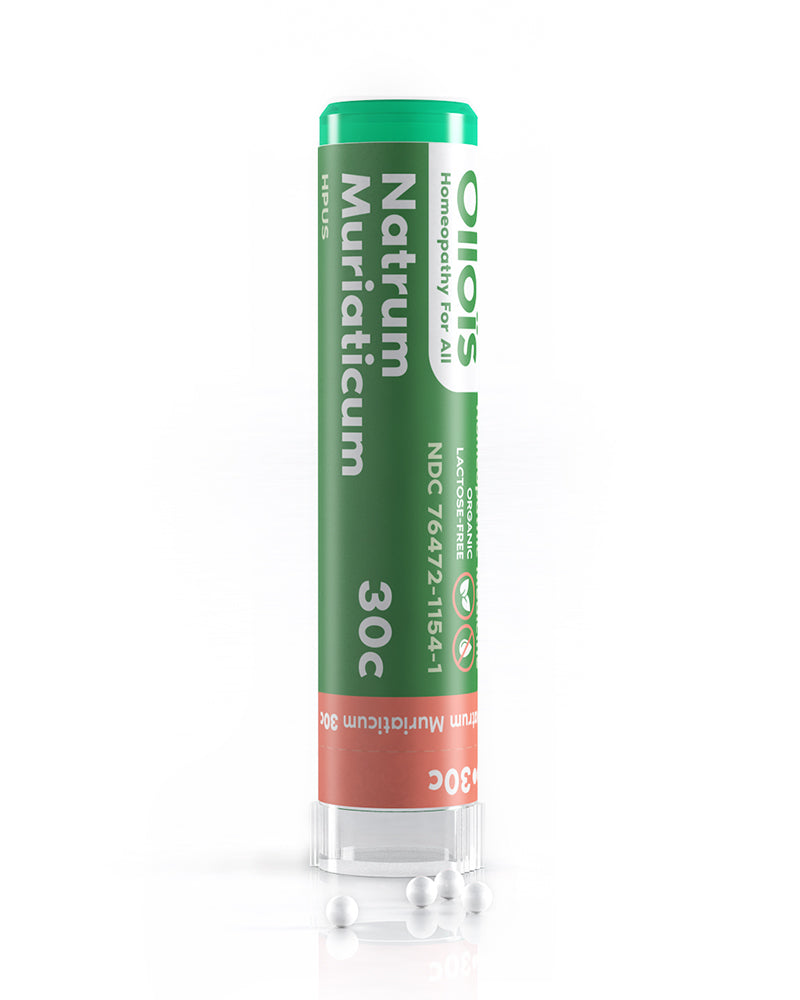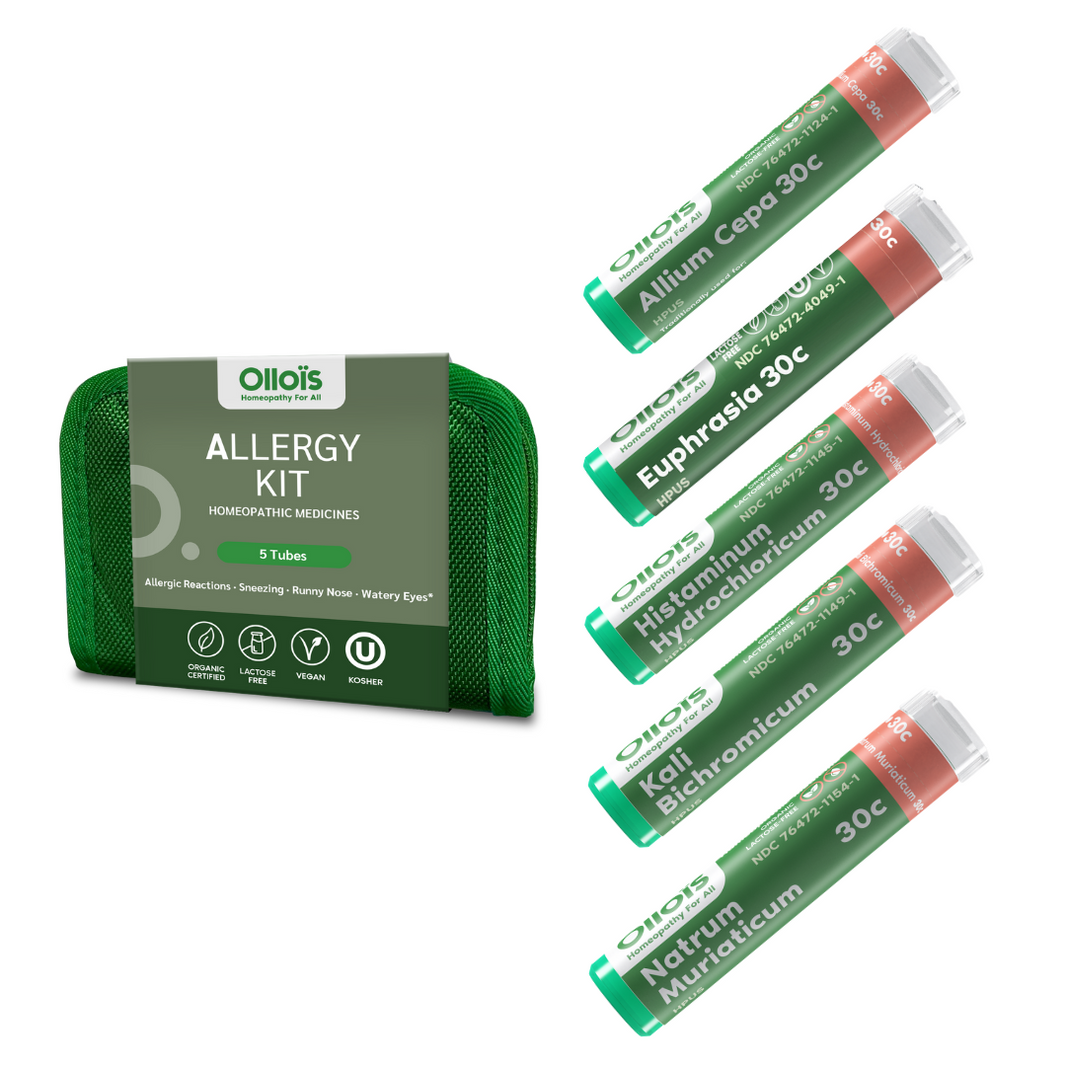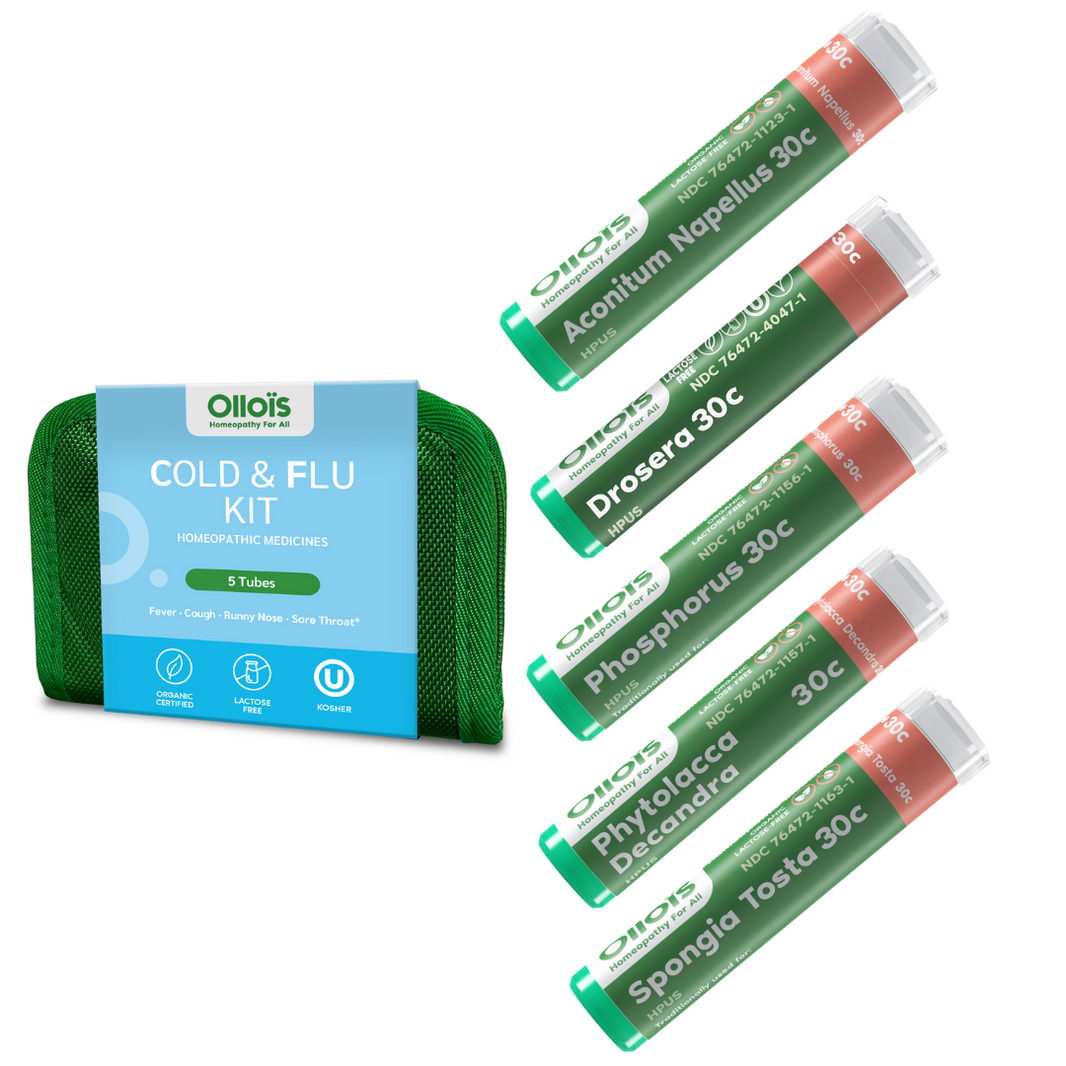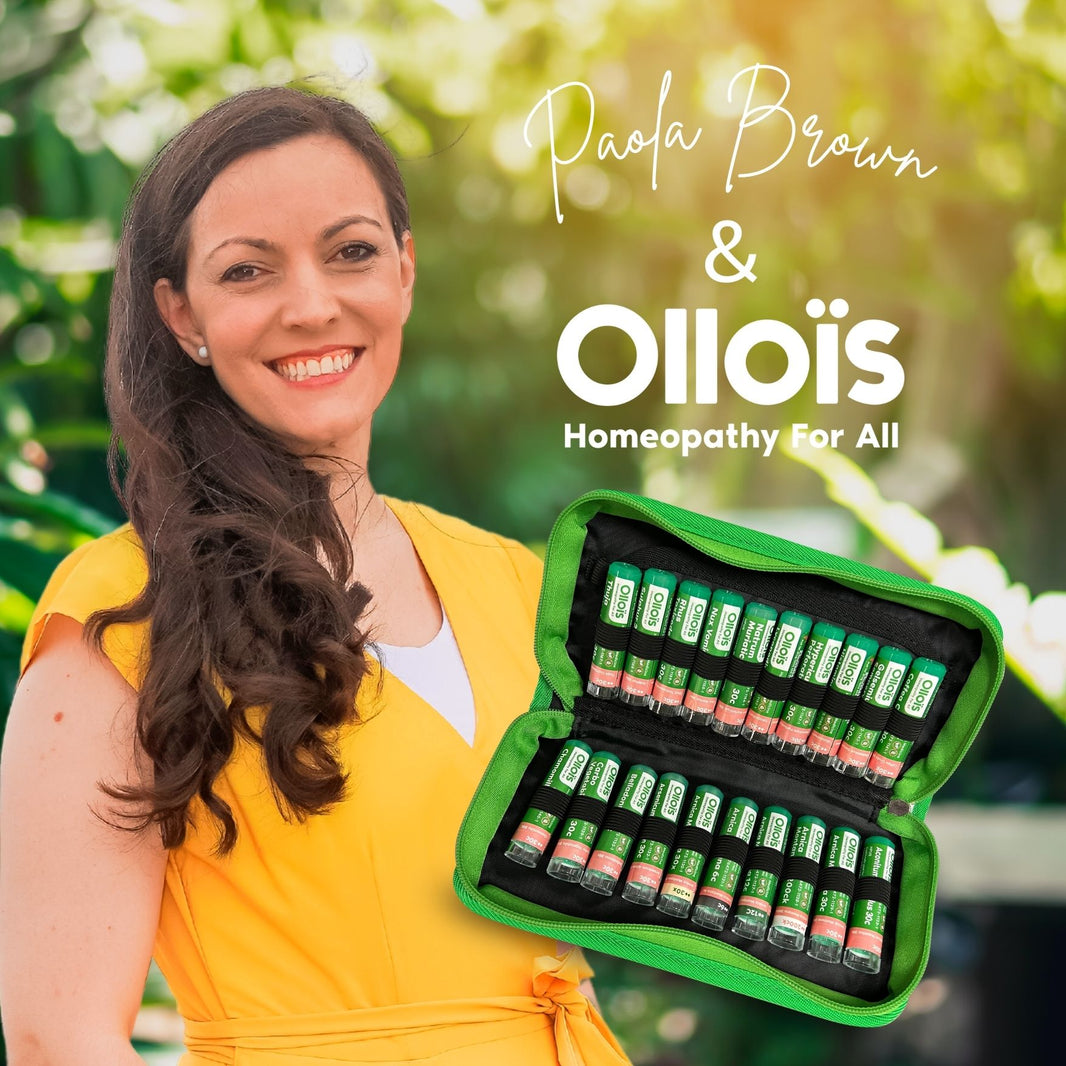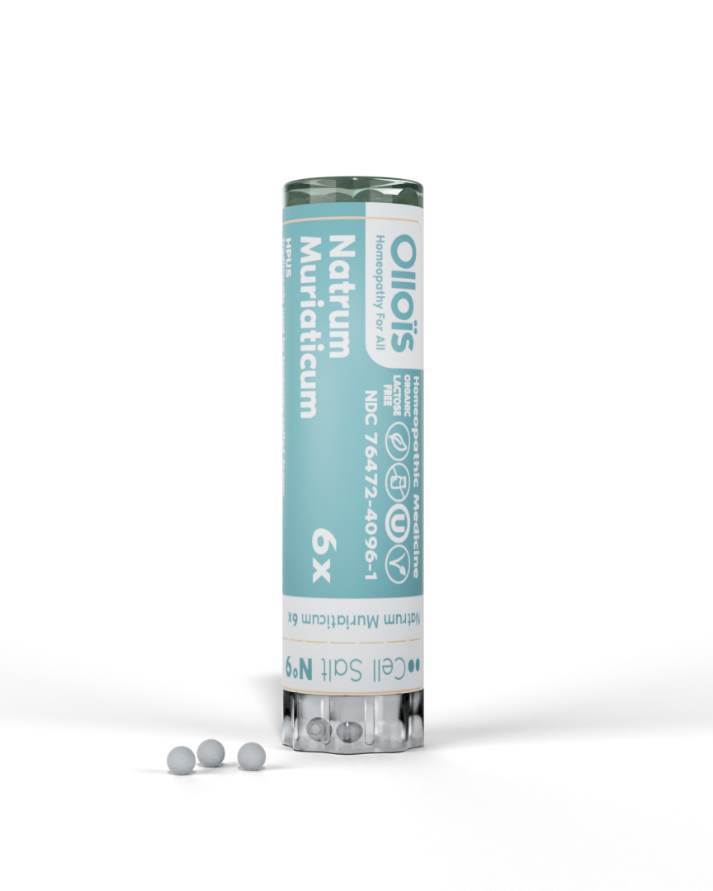Collection: Sneezing
Allium Cepa
Natrum Muriaticum
Homeopathic Allergy Kit
Homeopathic Cold And Flu Kit
Paola Brown & Olloïs: Evie Kit
Cell Salt N°9 Natrum Muriaticum
Sneezing is part of your body’s defence system, expelling perceived invaders such as dirt and bacteria. Entering a dust-filled room or a visit to a pollinating garden can send many into a series of sneezes. It’s the result of debris and/or allergens irritating the nasal mucous membranes and causing a natural reaction in the form of sneezing.
A runny nose is also part of this defence system. Dirt, debris, and bacteria are trapped by the mucous and digested in the stomach acids.
Runny noses and sneezing comes with a number of discomforts. Difficulty breathing and sniffling is a significant distraction to your work life and everyday routine. Constantly wiping the nostrils with tissues and frequent nose-blowing can lead to a raw, reddened, and irritated nose. These factors can also lead to difficulty sleeping.
Sneezing, in particular, spreads germs and viruses. As the body’s defence works to remove threats, a sneeze sends microscopic water droplets into the air which can spread germs and illnesses. And without frequent handwashing, a runny nose can be the source of germ and pathogen spread through touch. These symptoms make any interaction in a public setting problematic.
For those seeking relief, there is natural, homeopathic medicine for sneezing and a runny nose. They can help reduce mucous discharges by minimizing the sensitivity and inflammation of nasal membranes. This will make breathing easier and lessen the redness and irritation to the nostrils caused by itching and wiping with tissues.
Learn more about the homeopathic products available from Olloïs that can treat conditions like sneezing and runny nose today.
FAQ
What is Homeopathy?
Homeopathy is a medical practice based upon the boday's ability to heal itself, and the principle that "like cures like" or the Law of Similars: that is, if a natural substance causes a symptom in a healthy person, a very small amount of the same substance may help relieve symptoms of the illness. Homeopathic medicines enhance the body's normal healing and self-regulatory process.
How do I take homeopathic medicines?
Homeopathic medicated pellets contain only a little of an active ingredient for treatment of disease. These are known as highly diluted or "potentiated" substances. Homeopathic medicines should be placed under the tongue of adults and children or in the cheek of an infant, where they will dissolve. It is preferable to take homeopathic medicines apart from meals. The dosage is not related to the weight and age of the patient. In general, dissolve 5 pellets 3 times a day until symptoms are relieved or as directed by your health Care Professional.
Is there evidence that Homeopathy works?
There are literally hundreds of high quality, published basic sciences, pre-clinical and clinical studies showing that homeopathy works. These studies have been published in respected journals like Lancet, Pediatrics, Rheumatology, and Annals of Internal Medicine, among others.
A great source of high quality research in homeopathy at an
international level is the Homeopathic Research Institute in the U.K. headed by physicist, Dr Alexander Tournier. Click below to learn more about their studies and rigorous methods.
Is Homeopathy regulated?
The U.S. Congress passed a law in 1938 declaring that homeopathic remedies are to be regulated by the U.S. Food and Drug Administration (FDA) in the same manner as nonprescription, over the counter (OTC) drugs.
Is Homeopathy new?
The Law of Similars has been known since at least the time of Hippocrates (ca. 400 B.C.), but it was doctor and chemist Samuel Hahnemann who fully stated the ideas of homeopathy in the early 1800's in Germany. He discovered the truth of the Law of Similars by testing small doses of medicine on himself. Although there is wider acceptance of homeopathy in countries such as France, Germany, Mexico, Argentina, India and Great Britain, we have seen a greater interest in homeopathic medicine in the USA recently. In fact, the family doctor to England's Queen Elizabeth is a homeopathic physician.
What is the difference between the dilutions?
30C dilutions are traditionally used in Homeopathy to address general and chronic symptoms.
200CK dilutions are usually recommended by healthcare practitioners when there is an emotional component associated with physical symptoms.
Which base ingredient do you use for your pellets?
Our pellets are made from Organic Beet Sucrose exclusively grown in Europe. We then impregnate the pellets with the homeopathic dilution of the remedy.
How to open our tubes?
Are Olloïs remedies HAS/FSA eligible?
Yes, Olloïs homeopathic remedies are eligible.
 Respiratory
Respiratory
 Stress & Sleep
Stress & Sleep
